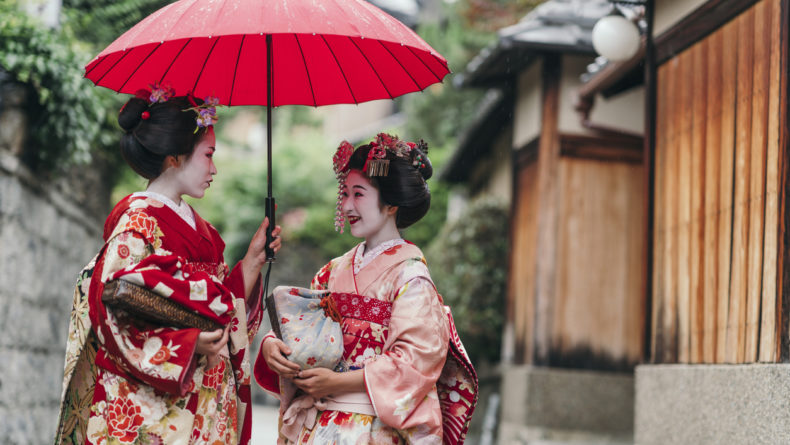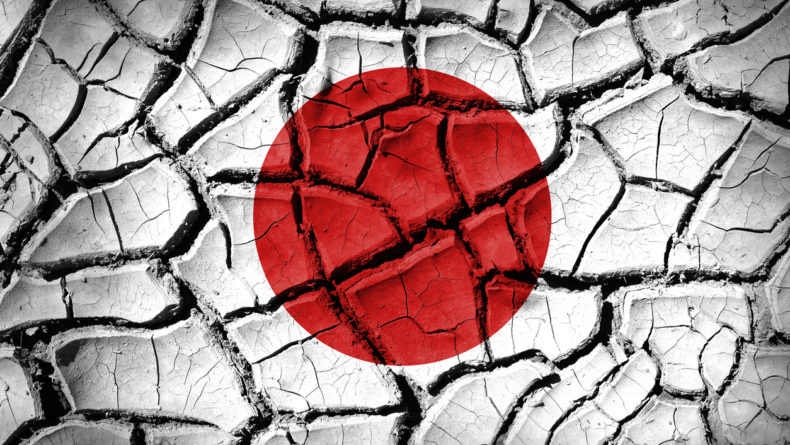Lessons From A Former Expat: 10 Things You Should Know Before Coming To Japan
Been There, Done That
Moving to Japan from anywhere in the world is one of the most exciting but difficult journeys an expat can make. From a relatively small foreign population and a language with three tricky alphabets, to an open well of opportunities and places to explore, it can be unpredictable.
The moment you land in the colossal city of Tokyo, do a 360-degree turn and spot the three-layered highway and towering skyscrapers — as you do, you’ll get that instant rush of awe, confusion and terror.
Those first few weeks of my Japan journey will forever be etched in my mind. As we were dropped off at our temporary accommodation and the jet lag took hold, the blur of packing up, saying goodbye to our dearest and getting on the plane to here simply disappeared.
Now back home, I recall my Japan experience and find myself thinking “if only someone had told me that before.” Well, here I am telling you all this now. These are my top ten things that for better or worse, I think any expat to Japan needs to know as they embark on their Japan adventure.
1. Etiquette: Your manners matter more than you think
This will save you from some awkward interactions. Our first meal in Japan left us sat for 20 minutes wondering why no one had come over to ask us what we would like to order. We soon realized why everyone was shouting sumimasen (excuse me) to get the attention of the waiters and waitresses. We were given the time to get settled, choose what to have and then, when ready, call the waiters politely. It’s a give and take — you will be expected to treat people with respect here just as you would be treated.
Also — don’t tip! What you get on your bill is what you should pay — usually at the cashier, not the table. As I got used to the life in Japan, I also gradually got rid of my sometimes grim etiquette of London, whether that meant smiling, giving polite and short bows, or simply having a friendly demeanor. No one is saying chat to people on the train (don’t be silly!), but reminding yourself that you won’t get anywhere with hostility will get you a long way.
2. Earthquakes: Be prepared, it will happen
Within our first few days, we had the strongest one we had experienced in the entire two years we were in Tokyo. And we had no idea what do. Mid-laundry we simply stood, wide-eyed in a doorway as our phones shrieked at us—in Japanese of course—and we helplessly discussed what we thought you were meant to do in an earthquake.
Do yourself a favor and read your guidance from the ward office (those are given to you when you register at the local municipality) or check for information online for detailed dos and don’ts. But to give you the basics: don’t panic and stay where you are. Then, stay close to a strong load-bearing doorway, an inside corner of a building, or move under a sturdy piece of furniture (not a glass one of course!), and drop to the ground and cover your head. Do not exit the building until the shaking stops. For other things you can do to prepare for a potential earthquake, read this article.
3. Business: Get your business cards ready
There is one ceremony at any meeting or business encounter that you should definitely know, and that is the meishi (business cards) swap. Most of the time foreigners are forgiven, and sometimes are approached with a simple handshake, but learning the greeting can save you embarrassment in front of colleagues and clients. Needless to say, my first experience of this meant all I could do was bow, smile and sheepishly say, “it’s nice to meet you.”
4. Bust the busy: It’s okay to feel exhausted
As an expat, every weekend is a new adventure, capping off an intense work-week. We often forgot to just take a break, cook a meal and lay about the flat watching Netflix, and it was only until we had driven ourselves to the point of being run-down that we addressed this and had a good weekend of being couch potatoes. So if you get to the point where you can’t figure out why you’re so tired, just remember to give yourself a break. Work life in Tokyo can be particularly intense because of the hours and expectations, so remind yourself that you have limits.
5. Friends: Takes time … and effort
If you’ve come out with your partner, finding your own friends is particularly difficult while they are at work. I was fortunate arriving as a freelance journalist and a qualified TEFL teacher, but meeting people and making friends can be tough in a city where not everyone speaks your language. With Japanese people generally being more reserved, you may find it especially hard to break the ice in the beginning. I soon found the likes of SOGO Fitness, a community where I met people from all corners of the world who were all here for similar reasons. So find your sport or club and you will definitely meet some like-minded individuals, and many Japanese people are willing to test out their English with you.
6. Feet: Get ready to explore
Stick your shoes on. Tokyo is a walk-friendly city, as huge as it is. There is nothing more magical than walking past ancient Japanese architecture sat next to a gleaming crystal tower. From the old and edgy streets of Shimokitazawa, to a stroll along the Meguro river and into the craze of Shibuya, every street is different. And once you’ve conquered Tokyo, there is so much more to see. One trip that will stay with me was our holiday to the tropical wonder of Ishigaki in Okinawa: not to be missed.
7. Nibble: Everything … even natto
We all know that the food in Japan is exceptional, sometimes strange, but almost always delicious. I can’t say I put on or lost weight while I was in Tokyo, but boy did I eat. We’ve returned to London with a locker of recipes and food experiences that we want to share with everyone. So make sure you don’t just stick to the gyoza, tonkatsu and ramen diet, and make an effort to let your taste buds do some exploring.
8. Newness: Stay centered when you’re feeling lost
If you’re moving for the first time it can be daunting, and I’ve developed coping mechanisms for moving country (nevermind house). Reminding yourself that it could take up to six months to feel fully settled and on not on a permanent holiday is important. You’ll be sure to encounter moments where you stare out the window in the mid-summer heat and ask yourself why you’re on the other side of the world, in a different time zone to your friends and family. Making sure you take that time to speak to people back home, and on those days when you’re feeling low, to go out and try a new coffee shop, go for a run, or simply walk around for a bit makes it easier to get over those hump days.
9. Translate: Stay connected, it’ll help
Before you leave for Tokyo, friends and family joke that you won’t be able to read or understand anything, and you might attempt some pre-move Japanese lessons. We had limited time so this was not an option, but Tokyo, and Japan, in general, was a lot easier to get around than we initially thought. People are friendly, so even if you are lost, confused and completely out of your depth, everyone will do their best to help direct and explain things to you.
However, having Google Translate, particularly for those journeys outside of Tokyo, was a lifesaver, and meant the difference between buying milk for my coffee instead of yogurt (yes, this happened). If you have the time and inclination, take some lessons, otherwise, out of respect you should have the basics under your belt.
10. Time: It’s ticking, so use it wisely
Our time in Tokyo was both the perfect span, but also too short. We always said: “it’s fine, we have two years to do that!” but before you know it it’s all over. If there is one piece of advice I would like to give all future expats to Japan, it will be: Make the most of your time here. Time passes by so quickly. There are so many things I wish I could still do, including having my own kimono made, making it to a sumo match, visit Kyushu, head to the Sapporo for the ice festival in February and to snowboard down the slopes of Niseko, and maybe just a little more sushi. So needless to say, we’ll definitely be back for a holiday!
Are you a former expat in Japan? Would you like to add your tips to the list? Share your thoughts in the comments below!
















Leave a Reply